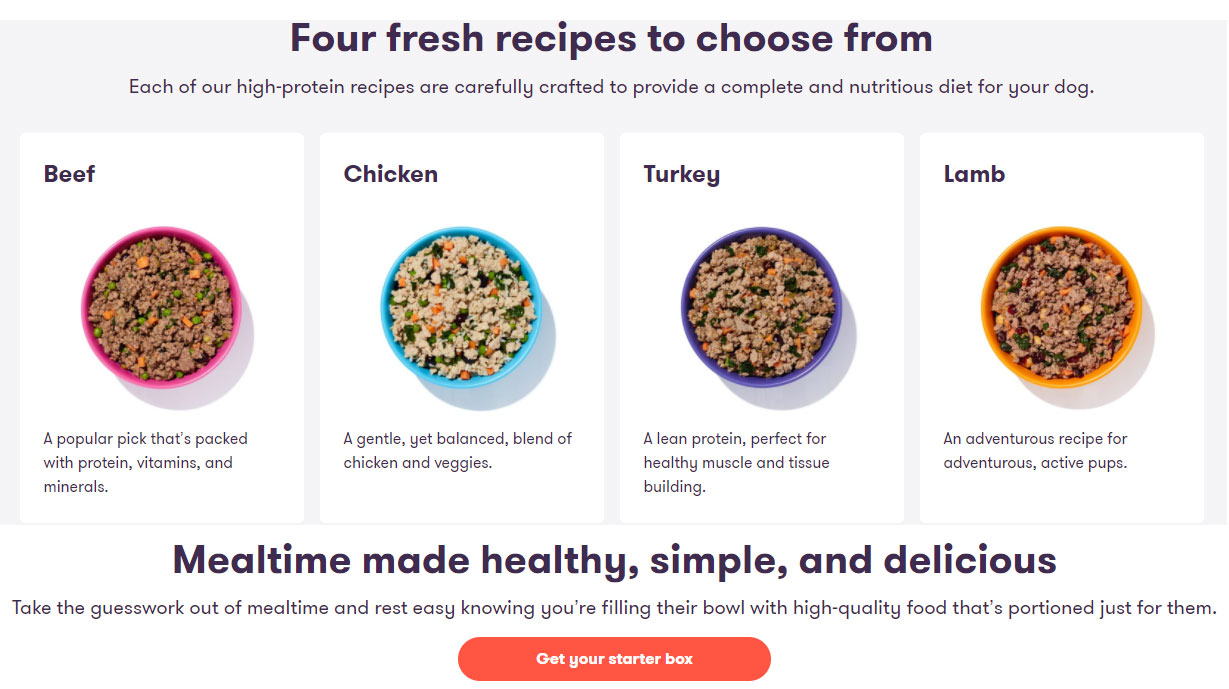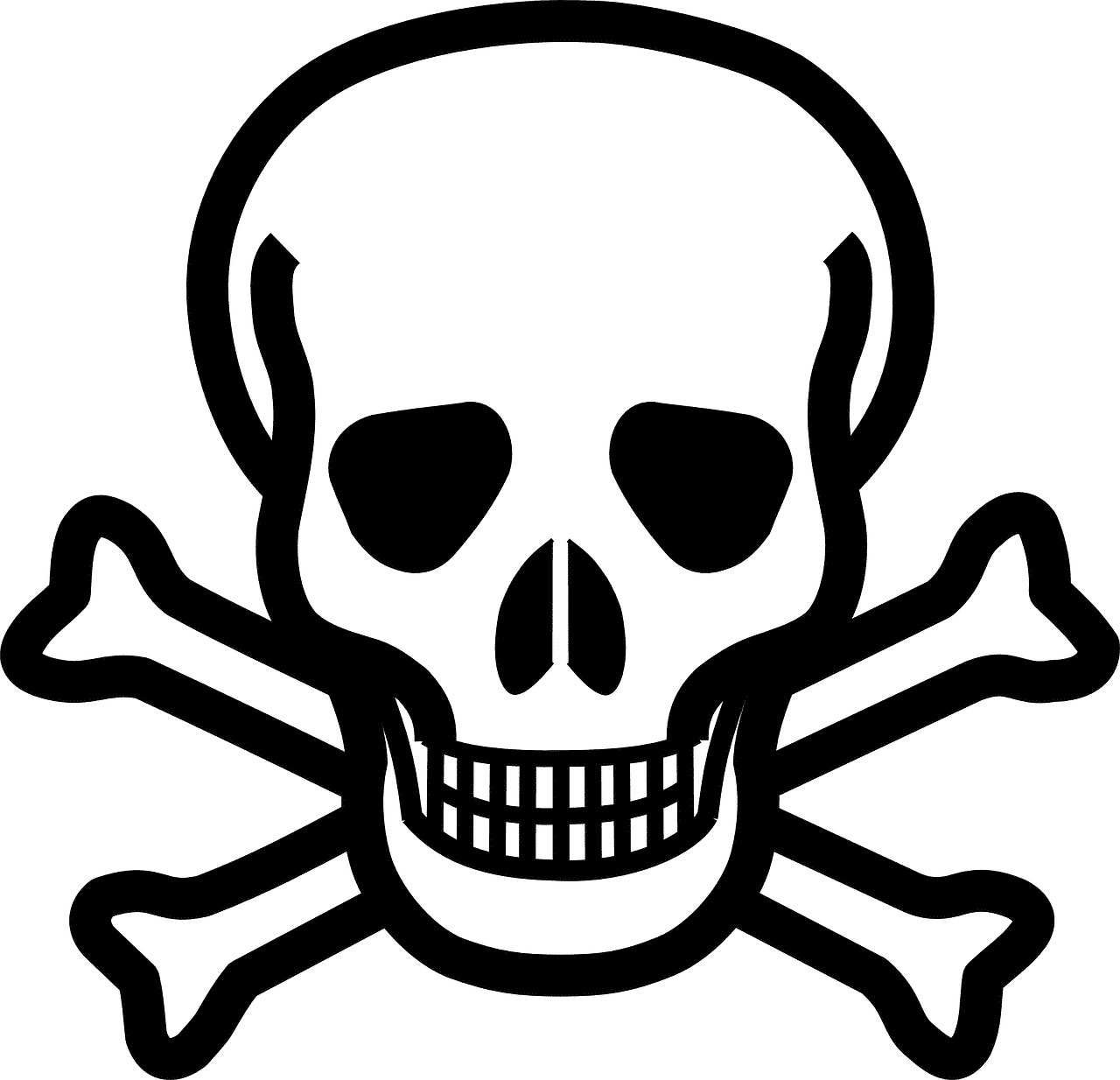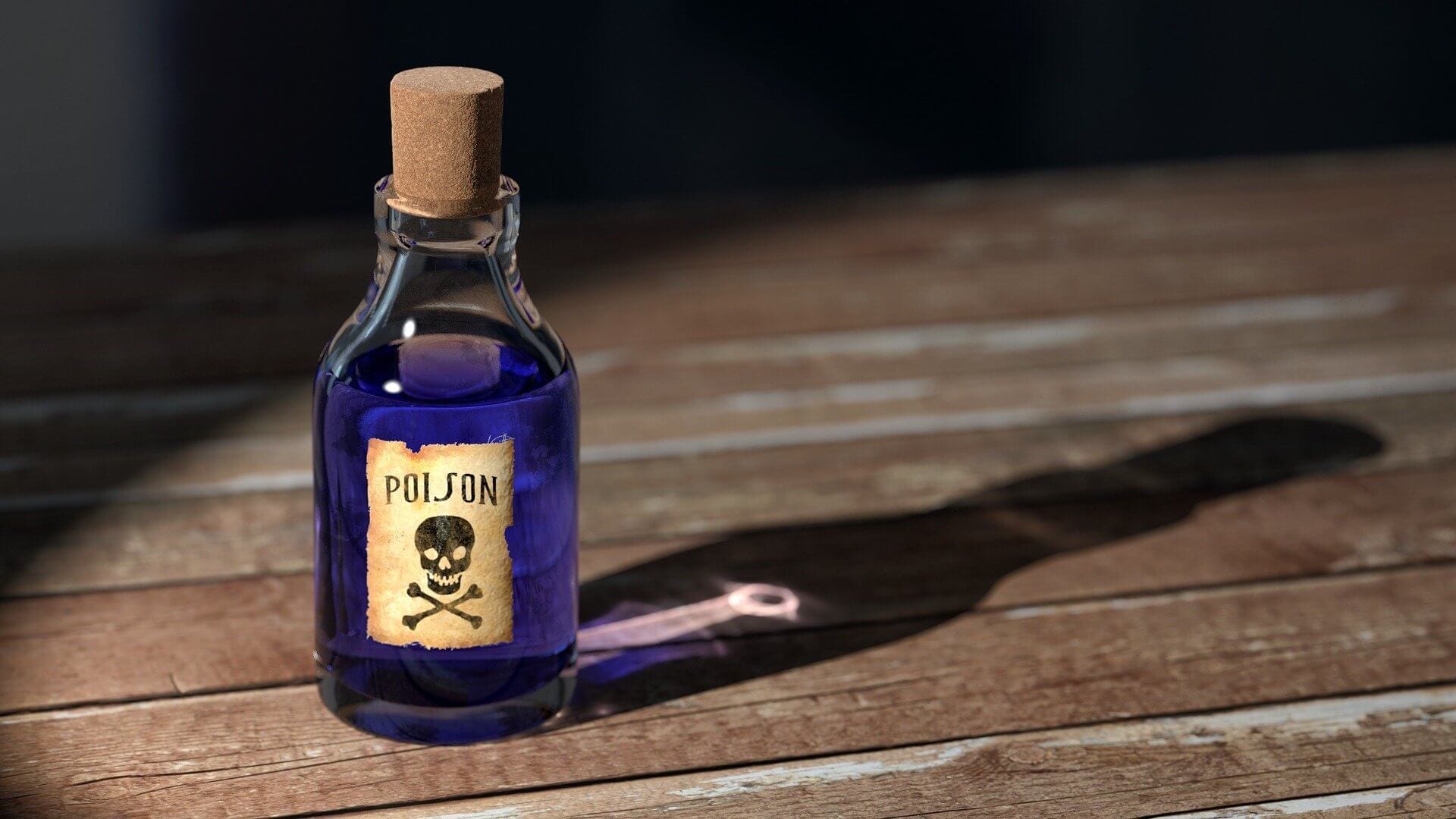My dog has been poisoned
Several elements can make an owner think that his dog has been poisoned, whether it is after having found him next to a chewed bottle of antifreeze, or because he shows abnormal behavior.
The owner's reaction is then crucial to offer the animal the best chances of recovery, whatever the poison and the dose ingested.
But it is still necessary to be able to recognize the symptoms of a poisoning in the dog and to know what to do in such a situation. I tell you everything in this article to take care of your dog's health.
What is dog poisoning?
A poisoned dog is a dog that has ingested, inhaled or touched a toxic substance that can damage its body and put its health at risk. In general, noxious products are not responsible for poisoning dogs, but rather for illness.
For example, sugar, which is harmful to dogs, can cause type II diabetes in the long term, a serious disease for which there is currently no cure. On the other hand, toxic products are responsible for poisoning, such as chocolate, which contains theobromine, a substance that is fatal for dogs up to 15 grams of dark chocolate per kilo of body weight.
Some products that are toxic to dogs are not toxic to humans (grapes, garlic, certain plants, etc.), and others are toxic to all species in varying doses (rat poison, aconite, antifreeze, etc.).
The main causes of dog poisoning
There are many situations and substances that can cause dog poisoning, and it is important to know what they are to best protect your pet.
Household products: Many household products are toxic to dogs, just as they are dangerous to human health. Among these are antifreeze, household products (descalers, detergents, cleaners, etc.), bleach, hydrocarbons, solvents, and many other chemical substances. These products are usually labeled according to their dangerousness: "toxic", "harmful" or "corrosive" products must be handled with care and stored in a place inaccessible to your dog. Other products are "only" harmful to humans, but toxic - and sometimes deadly - to dogs. These include tobacco or e-liquids for electronic cigarettes, alcohol, cannabis or any other products containing active substances.
Poisonous plants for dogs: Potted houseplants, wildflowers, trees in your garden or bushes in the woods, nature is full of killers that can poison your dog. Most plants that are poisonous to dogs are not - or only slightly - poisonous to humans, so you may not even be aware that they are a danger to your dog. If almost everyone knows how dangerous monkshood, dodder, bay laurel or autumn colchicum can be, who would suspect that begonias, hydrangeas, ficus or citrus can also be dangerous to your pet?
Human medications: Human medications should never be given to pets unless explicitly recommended by a veterinarian. Paracetamol or Aspirin, among many others, are deadly for dogs and should always be kept out of their reach. Be careful not to try to self-medicate with your dog: some human medications may contain molecules used in veterinary medicine, which may lead owners to think that they are suitable for dogs. However, not only the question of dosage arises, but also those of the excipients which can be lethal for dogs, as is the case with Xylitol, a sweetener.
Human foods: Many people refuse to believe it, but many foods that are harmless to humans can poison a dog and cause death. These include chocolate, coffee, grapes - especially raisins, macadamia nuts, garlic and many other ingredients. To avoid this kind of accident, you should avoid giving your dog leftovers and not improvise in the creation of recipes for home rations if this is the food you have chosen for your dog.
Malicious acts: Dogs poisoned by malicious neighbors are unfortunately legion, so I recommend that you pay special attention to individuals who may have a grudge against your pet. If your dog has a tendency to bark incessantly, run away, damage neighbors' property, or scare people in the neighborhood, someone may want to harm your dog with poisoned bait - often rat poison. Please note that it is your responsibility to ensure the peace of mind of your neighbors, so the first thing to do to prevent this type of situation is to solve your pet's behavioural problems.
Never use violence with a resistant dog, nor should you let the situation get out of hand. Unwanted behavior in dogs always has a cause, so start by looking for the cause to eliminate it. For example, a runaway dog is often a whole dog that will change its behavior once it is sterilized. A barking dog is often a sign of anxiety due to boredom or too long a separation from an owner who works all day. Most of the time, these situations can be solved by applying the proper training methods depending on the cause of the unwanted behavior. If you are unable to gently train your dog to avoid disturbing the whole neighborhood, the best thing to do is to contact a professional dog trainer or a dog behavior expert.
Mistakes made by the owner: many owners are not well informed about the toxicity of certain foods and medications that are safe for humans. It is not uncommon to see a dog die from Paracetamol or theobromine poisoning, after the owner simply wanted to relieve his pain with a Doliprane or reward him with a few chocolate bars.
Gluttonous dogs and puppies: Young dogs who are new to the world tend to put everything in their mouths, and are therefore at increased risk of poisoning. They are likely to chew poisonous plants, swallow poisonous berries or fermented fruit, steal your cigarette pack or rummage through your household cupboard. The same is true of some adult dogs that continue this habit as they grow older, as well as breeds that are notorious for gobbling up anything and everything (especially Beagles).

Symptoms of poisoning in dogs
Symptoms of poisoning in dogs vary depending on the initial state of health of the dog, the toxicity of the substance and its properties, and the dose ingested or inhaled. Elderly, sick or very young dogs will be more fragile and may have more severe symptoms, often indicating more serious damage.
Almost all toxic substances cause digestive problems, so you will notice vomiting, nausea, diarrhea, and signs of pain that may result in unusual analgesic postures. Nausea in dogs is rather inconspicuous, but can eventually be recognized by frequent licking of the muzzle and lips and excessive mobilization of the jaws.
Hyper salivation can also be a sign of vomiting in the dog and, when this is not the case, usually occurs when the dog has eaten something that tastes unpleasant and remains in the mouth. A dog that salivates excessively, unless it is simply watching you cook, should therefore always alert you.
Many toxic substances also have neurological effects, and a poisoned dog often shows nervous signs. The dog may have an unusual gait, become depressed, tremble or be very weak. Finally, breathing problems, coughing, a rapid pulse, blood in the stool or any change in behavior should alert you.
What should I do if my dog has been poisoned?
What to do if your dog is poisoned depends very much on the condition of your dog at the time you suspect poisoning. If your pet is unconscious, shaking, weak, paralyzed, tachycardic or in respiratory distress, you must act quickly.
Don't waste time with steps 1, 2 and 3: wrap your dog in a warm blanket and go to the emergency room as soon as possible. On the other hand, if your dog only has hyper salivation or minor digestive problems, it may be worthwhile to quickly look for the poison involved and contact the Poison Control Center before contacting a veterinarian.
1. Find the poison
It's always much easier to know how to help your pet when you know the poison involved. If your dog appears to have been poisoned, try to find the substance he or she may have ingested. Look for chewed-up bottles of household products, upside-down food cupboards, an overturned vase of lily of the valley, a bucket of white spirit in which you may have dipped paint brushes...
Think also about the plants in your garden and the fermented fruits that your dog could have found in a garbage can, a compost or at the foot of a tree. If your dog has a habit of hiding the items he steals from you, go to his favorite hiding places (if you know them): you may find the murder weapon there. Once you've found the object of the crime, check the label, which may contain information on what to do in case of poisoning. Finally, note that some poisons take several days to work, such as some rat poisoners: if you can't see what your dog has swallowed or breathed in, he may have been poisoned a few days earlier at a friend's house or on a walk.
2. Examine your dog
Take a close look at the symptoms that lead you to believe your pet may have been poisoned. This may help an expert at the poison control center or your veterinarian determine the cause of the poisoning or the doses ingested. If you have noticed stomach upset or hyper salivation, inspect your pet's mouth for possible burns or irritation. His coat can also give you valuable clues: is it dirty or smelly? For example, a dog may have hydrocarbon poisoning after rolling around in a puddle of gasoline or other volatile product.
Also check your pet's belly for pain on palpation, which can indicate gastric irritation. A painful, very soft or very hard belly can be a symptom of toxin poisoning or intestinal obstruction. Finally, pay attention to your pet's behavior: is he down, prostrate or overexcited? Look at his bowls: has he abandoned his kibble, drunk more or less than usual? Lameness, urinary incontinence or, conversely, anuria, signs of disorientation or nervous disorders are also indicators of possible poisoning.
3. Contact a Poison Control Centre
Once you have gathered as much information as possible, and if the situation does not seem urgent, contact an animal poison control center. However, this step will not be helpful if you have no idea what your pet ingested or if you do not have the product's packaging with the list of ingredients. Poison control centers are designed to answer your questions about the toxicity of products for your faithful companions.
They are a good place to go if your dog has swallowed a product whose potential harmful effects you are not aware of, or if he has ingested a moderately toxic product in smaller quantities. In this type of situation, where the animal does not show serious symptoms, the experts at the Poison Control Center will advise you on what to do and will inform you of the dangers incurred by the animal. In order to do this, remember to inform your interlocutor of your dog's possible weaknesses, for example if it is ill, under medical treatment, old or very young, or even weakened.
4. Go to the veterinarian
If you have previously contacted a poison control center that has reassured you that the product you ingested is safe and that any risk to your pet's health has been ruled out, this step is not mandatory. In all other cases, whether or not your dog shows marked symptoms of poisoning, the best thing to do is to contact a veterinarian who will judge the seriousness of the situation. Again, give the veterinarian all the information you have about the symptoms and the product your pet ingested.
The veterinarian will advise you on how to care for your pet or will treat him directly depending on the toxin involved and the dog's symptoms. In some cases, the veterinarian may recommend simple monitoring of your pet to ensure that symptoms do not worsen. In other cases, the veterinarian may recommend palliative treatment to relieve your dog's pain until his body eliminates the poison. Finally, in the most severe cases, your dog may need to be hospitalized for rewarming, infusion or curative treatment.

3 things to avoid if your dog has been poisoned
You can read everywhere on the web that you should make your dog vomit after eating poison, give him water or make him swallow activated charcoal. If these gestures can indeed prove to be saving, they can also largely worsen the situation if they are not adapted to the toxin concerned and to the dog's condition!
Making your dog vomit
Vomiting a dog that has swallowed a corrosive substance is "worse than better": the poison would pass twice (back and forth) through the animal's esophagus and mouth, and could then cause serious chemical burns.
Before inducing vomiting, you should be absolutely certain that you know what you have ingested and ask a poison control center or veterinarian what to do.
Furthermore, if you want to make your pet vomit a poison that has been ingested, it must be swallowed within the hour: after this time, vomiting is useless.
Making your dog drink
Getting your dog to drink can make the situation much worse if the dog has been poisoned by detergent. Although not usually serious, the ingestion of laundry detergent or dishwashing liquid can quickly turn into a nightmare if, when mixed with water, these products start to foam in your dog's stomach.
The foam can then invade the animal's lungs and attack its airways, even causing asphyxiation.
The Poison Control Center may advise you to give a dog that has swallowed a non-foaming acidic or corrosive liquid a drink to dilute it, but you must be certain of the product ingested by the animal.
Giving activated charcoal to your dog
Activated charcoal is often used in poisoning cases, as it allows the toxins to be absorbed and prevents them from spreading in the body. However, it is only useful for certain poisons (known as "carboabsorbable") and only within an hour of ingesting the toxic compounds.
Furthermore, it should not be given inappropriately, as it may prevent the action of other medications that a veterinarian would want to use to treat the animal. Finally, in case of vomiting or convulsion, giving activated charcoal to your dog can cause a false start and lead to asphyxia.
Activated charcoal remains an effective treatment, often prescribed by veterinarians in case of poisoning. However, I strongly recommend that you seek advice from a poison control center or a veterinarian before giving it to your pet to avoid any mishaps.
FAQ
Who do I contact if my dog has been poisoned?
If your dog is not showing symptoms, but has obviously swallowed an inedible product, the best thing to do is to contact a poison control center, which will inform you about the dangers of the product and what to do. If your dog has no symptoms, but has ingested or inhaled a highly toxic product, contact your veterinarian and/or an animal poison control center as a matter of urgency. If your dog is showing symptoms of poisoning - severe or otherwise - and you do not know what the substance is, contact your veterinarian as soon as possible.
What are the toxic products for dogs?
There is a plethora of toxic products for dogs: household products, medicines for humans, plants, nicotine... But also everyday food! Beware of chocolate, grapes and garlic, which many owners overlook as being highly toxic for our four-legged friends.
What are the causes of dog poisoning?
Dogs are often poisoned by eating or chewing on toxic products out of curiosity, for fun or because the smell attracts them. But the number of dogs poisoned by malicious acts is also constantly increasing, so it is a point on which we must be vigilant. Finally, many owners unintentionally poison their dogs by self-medicating or feeding their dogs human food.
How to prevent poisoning in dogs?
The best way to prevent poisoning is to educate your pet to eat only what you give him. With some gluttons, this is sometimes impossible and it can be interesting to opt for an ergonomic and comfortable muzzle to protect your dog from his legendary greed while walking.
Finally, if your dog has behavioral problems (running away and barking, for example), the best thing to do is to solve them with the help of a professional dog trainer so as not to make your neighbors want to kill him. Dogs are notorious for swallowing anything, and protecting them from poisoning can be a real challenge for some owners.
By learning to recognize the symptoms of poisoning and acting quickly, however, you have a good chance of saving your dog if he becomes poisoned. If your pet has swallowed an unknown product, don't hesitate to contact a poison control center, which will inform you about the dangerousness of the substance in question and tell you what to do.

